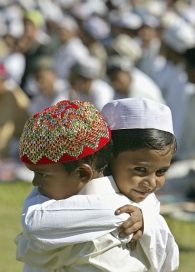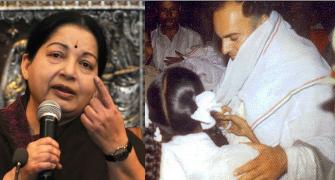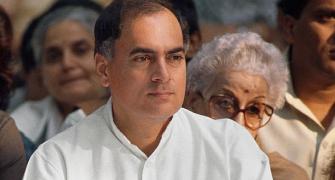 Irrespective of their religious background, people are free to adopt children, the Supreme Court ruled on Wednesday, paving the way for the adoption of children by people from the Muslim community even though it is not allowed under their personal law.
Irrespective of their religious background, people are free to adopt children, the Supreme Court ruled on Wednesday, paving the way for the adoption of children by people from the Muslim community even though it is not allowed under their personal law.
Holding that the Juvenile Justice (Care and Protection of Children) Act is a "small step" towards the concept of an Uniform Civil Code, the apex court held that the law entitles adoption by people belonging to any religion and any person, who does not submit himself to personal law, can adopt a child.
"To us, the Act is a small step in reaching the goal enshrined by Article 44 of the Constitution (Uniform Civil Code). Personal beliefs and faiths, though they must be honoured, cannot dictate the operation of the provisions of an enabling statute," a bench headed by Chief Justice P Sathasivam said.
The Act does not mandate any compulsive action by any prospective parent, leaving such person with the liberty of accessing the provisions of the Act, if he so desires, the court said.
"Such a person is always free to adopt or choose not to do so and, instead, follow what he comprehends to be the diktats of the personal law applicable to him," the bench, also comprising justices Ranjan Gogoi and Shiva Kriti Singh, said.
The Bench said the Act is an enabling legislation that gives a prospective parent the option of adopting an eligible child by following due procedure.
"At the cost of repetition, we would like to say that an optional legislation that does not contain an unavoidable imperative cannot be stultified by principles of personal law which, however, would always continue to govern any person who chooses to so submit himself until such time that the vision of a uniform Civil Code is achieved.
"The same can only happen by the collective decision of the generation(s) to come to sink conflicting faiths and beliefs that are still active as on date," said Justice Gogoi, who wrote the judgment.
The apex court, however, turned down the plea for declaring the right of a child to be adopted and the right of a parent to adopt as a fundamental right under the Constitution, saying that such order cannot be passed at this stage, in view of conflicting practices and beliefs.
"While it is correct that the dimensions and perspectives of the meaning and content of fundamental rights are in a process of constant evolution as is bound to happen in a vibrant democracy where the mind is always free, elevation of the right to adopt or to be adopted to the status of a Fundamental Right, in our considered view, will have to await
a dissipation of the conflicting thought processes in this sphere of practices and beliefs prevailing in the country," it said.
The bench was hearing a PIL filed in 2005 by social activist Shabnam Hashmi, seeking the court's direction to frame uniform guidelines for the adoption of children, which is not recognised by Muslim Personal Law.
During the pendency of the petition, the Centre amended the JJ Act in 2006 and the responsibility of giving in adoption was cast upon the Court and Central Adoption Resource Agency, which received statutory recognition. The Centre also notified the guidelines framed by CARA.
According to government data, the number of reported adoptions in the country between January and September, 2013 was 19,884, out of which 1,712 cases are of inter-country adoption.
The Centre had informed the court that at the end of 2013, Child Welfare Committees were functioning in 619 districts and State Adoption Resource Agencies have been set up in 26 states/Union Territories.
It had said Adoption Recommendation Committees have been constituted in 18 States/Union Territories. The number of recognised adoption organisations in the country is 395.









